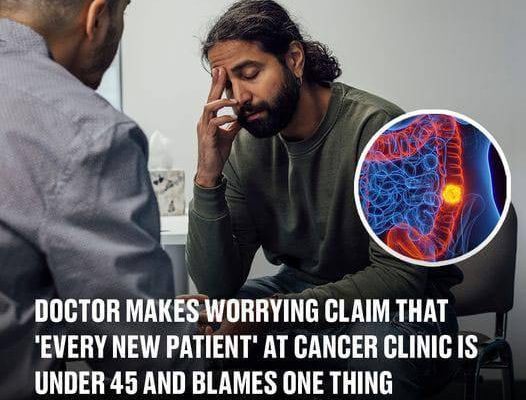
Based on the data reviewed and his one-on-one interactions with his patients, Dr. DeVito has concluded that junk food and processed meat are contributing to the surge in young cancer patients. The doctor noticed that the number of gastrointestinal malignancies was increasing among those under the age of 50. He also observed that the incidence of stomach and bile duct cancer increased with each generation.
Almost three-quarters of Americans already consume processed foods in their diet. Diets high in processed foods have been linked to gastrointestinal cancer. [2] This raises issues about the proper regulation of the food business. The United States frequently allows the use of compounds that have yet to be demonstrated completely safe.
This is in stark contrast to the European Union’s regulatory regulations, which require ingredients to be proven safe before being released to the market. Fast food advertisements that depict a healthy and social lifestyle, with no warning of the true repercussions of ingesting ultra-processed fast food, contribute to the lack of regulation. Eating junk food has been ingrained in American culture, just like baseball and Independence Day.
Not to mention the industrial lobbyists who work to portray junk food in a favorable way. The doctor believes that the goal to safeguard citizens from cancer-causing drugs must outweigh the political interests of these lobbyists. Doctors urge that people eat less highly processed food that is heavy in salt, sugar, and saturated fats. This includes biscuits, cakes, pastries, fries, sugar-sweetened sodas, and fast foods like burgers and pizzas.
While cancer was generally associated with the elderly, there has been a trend in recent years of people being diagnosed with cancer at an increasingly younger age. While there are many factors that contribute to the development of cancer, processed meat and other highly processed meals have recently received the most attention. According to recent research, gut bacteria that are more frequent in those with high-sugar, low-fiber diets might sometimes cause early-onset colon cancer.
Some tumors in persons with early-onset colorectal cancer may have mutations caused by these microbial species. Doctors believe that these alterations reduce the body’s ability to combat pre-cancerous cells.Ultra-processed foods include packaged foods, beverages, cereals, and ready-to-eat goods that contain colorants, emulsifiers, flavorings, and other additives. They are generally high in sugar, saturated fat, and salt, with no nutrition or fiber.
One recent study found that ultra-processed foods account for around 73% of the American food supply. [3] Ultra-processed foods account for more than 60% of the average American’s daily caloric intake. Doctors recommend that this type of food be consumed in small quantities on an occasional basis. According to research, eating 10% more ultra-processed meals increases the chance of developing neck and head cancer by 23%.
A diet high in processed foods has also been related to a 24% increased chance of acquiring esophageal cancer. This form of cancer is the sixth leading cause of cancer-related deaths in the globe. Processed meat is so harmful to the human body that the World Health Organization recently categorized it as carcinogenic. There was also evidence that the eating of processed meat caused colon cancer.
Doctors believe the elevated cancer risk is linked to nitrates in the meat. When nitrates react with other substances in the body, they harm cells. Another study found that people who ate processed red meat every day were 40% more likely to get colon cancer. This was compared to people who ate meat only once a week. Consumption of nitrite preservatives, smoked foods, and red meat has been related to an increase in cancer risk. If you want to reduce your cancer risk, avoid processed meat and junk food as much as possible. Try to limit yourself to eating meat once a week; there are so many delicious alternatives to try!




